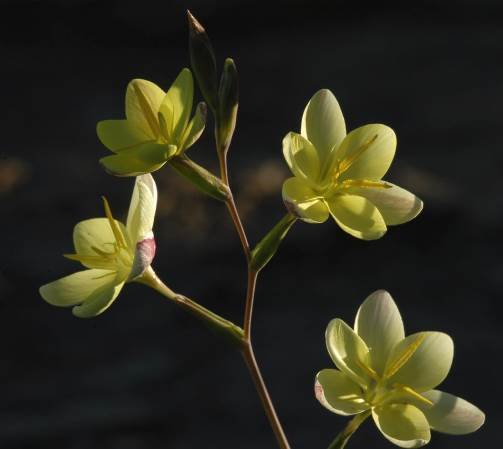Hesperantha falcata pale yellow inflorescence

Author: Ivan Lätti
Photographer: Louis Jordaan
Hesperantha falcata flowers yellow or pale yellow and scentless during the day. This form depends on colour for attracting pollinators in the light. The white flowering form opens at dusk with fragrance added for luring moths that operate in the dark.
Both forms usually have some red on the outside surfaces of the outer three tepals, the ones in the whorl exposed during budding. That colouring is believed to deter herbivores.
The inflorescence spike axis zigzags slightly in picture, the pair of green bracts enveloping the flower bases easy to miss.
The inner three tepals of the flowers in picture have a touch more yellow than the outer ones, although not as much as the yellow form may sometimes possess. All the tepals are concave inside, here with rounded tips; some plants bear tepals with pointed tips.
The three long, bilobed anthers diverge and taper to their narrow tips. Harder to see are the three, also long but thinner style branches that spread from the corolla tube mouth below the anthers (Vlok and Schutte-Vlok, 2015; Manning, 2007; Bean and Johns, 2005; iNaturalist).

